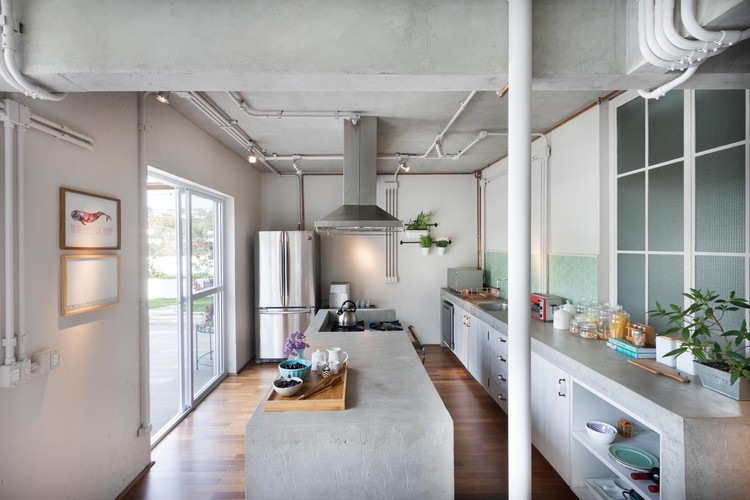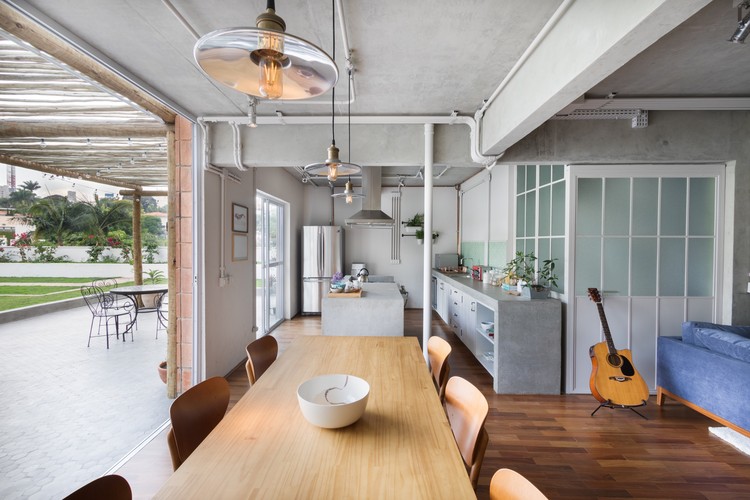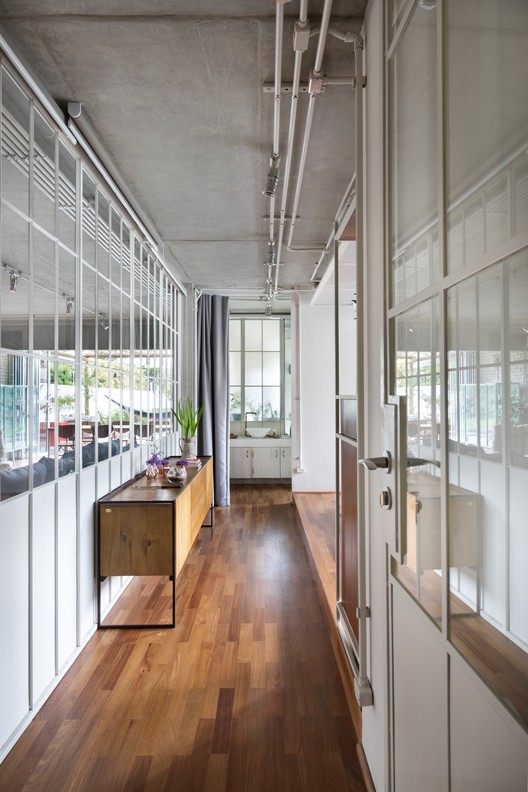
-
Architects: Memola Estúdio, Vitor Penha
- Area: 398 m²
- Year: 2018
-
Photographs:Alexandre Disaro
-
Manufacturers: Casa Franceza, Jf Móveis, LG2 Engenharia, Labluz, Museu do azulejo, Nicla, REKA, Uniflex

Text description provided by the architects. In a city as big as Sao Paulo, a place where houses increasingly give way to buildings, a couple had the good fortune of finding a ground floor apartment with a gigantic garden. However, the space was narrow, very dark and divided into several smaller rooms. They wanted it to reflect their personalities, prioritizing the connection between the living spaces and the garden, which is basically twice the size of the indoor space.

The starting point for the design was to explore natural lighting. Walls were demolished to allow for a connected space, and window frame, designed by Estudio Penha, were then incorporated to make room for the light. The privacy is guaranteed by curtains. The same window frame that divides the apartment also separates the bathroom, using patterned glass.


Shifting the kitchen to the forefront of the apartment – it used to be on a less privileged corner – was a major decision that granted the necessary integration, for cooking is the couple’s main activity. It highlights the common areas and extends them to the garden. Broadening the rooms and optimizing their use were the goals that guided the design.

The materials come together to deliver a warm and welcoming environment in this unique apartment: the wood that composes the entire flooring, the hexagonal tiles on the kitchen walls, the eucalyptus pergola. The concrete slab was kept apparent, as well as the electric and hydraulic installations, which were painted white so they would disappear in the background and better reflect the light. In the bathrooms, the white ceramic was chosen to blend into the apartment and the copper pipes give a unique personality to the room.

The furniture has a special place in the design, for the couple wanted to create space for affective memories, so that each corner has its own history. An apartment full of meaning, where light helps telling each guest a little bit about its dwellers’ lives.



























